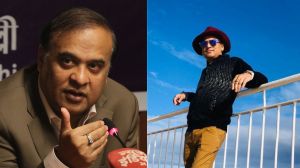PM cites China: oil PSUs can do with new look, compete abroad
Pointing to China’s great leap forward in energy security, Prime Minister Manmohan Singh today said his government was exploring possib...

Pointing to China’s great leap forward in energy security, Prime Minister Manmohan Singh today said his government was exploring possibilities of restructuring oil PSUs to make them globally competitive.
The government has also cleared the advisory panel on restructuring, headed by National Advisory Council member V Krishnamurthy.
Addressing the Petrotech Conference 2005 in New Delhi, Manmohan Singh said: ‘‘I find China ahead of us in planning for the future in the field of energy security. We can no longer be complacent and must learn to think strategically, to think ahead and to act swiftly and decisively.’’
‘‘This requires a greater degree of professionalism in the management of our oil and gas PSUs and in the formulation of our energy security strategy. We are exploring possibilities of restructuring our oil PSUs to make them globally competitive.’’
Speaking to reporters on the sidelines of the conference after the PM’s speech, Petroleum Minister Mani Shankar Aiyar said that the advisory panel on oil PSU restructuring has been approved and it will hold its first meeting on January 24.
Recommendations of the six-member panel will be the basis for the government to restructure oil PSUs. Aiyar said that the panel would look at options of merging two or more companies to create oil behemoths with financial capabilities to match Chinese firms in the international arena.
Apart from Krishnamurthy, others on the panel will be Rajiv Gandhi loyalist G K Arora, former disinvestment commission chairman G V Ramakrishna, former advisor to Finance minister Vijay Kelkar, former ONGC chairman B C Bora and former BPCL chairman U Sunderajan.
The panel has been given a time frame of two months to submit its report. Among the options before it is merging all oil PSUs into one mega firm or creating two oil behemoths by merging HPCL and BPCL with ONGC and OIL with IOC.
Aiyar said that another option would be to keep the oil companies as they are but devise a management structure which will ensure that the PSUs act in unison and coordinate their efforts. Merging all oil PSUs into one behemoth will place it at number 34 on the Fortune 500 list of global majors. The Prime Minister said there was national consensus on the policy ‘‘with respect to strengthening of our oil and gas companies and enabling them to emerge as global firms.’’
‘‘Our government will help in the growth of a strong and vibrant public sector which can compete on an equal footing with the private sector on the same terms and conditions,’’ Singh said.
Hinting at a review of the present pricing mechansim in the petroleum sector, he said that rational pricing of energy was a critical aspect of energy policy and a vital element of energy security for the country.
‘‘The introduction of pricing in the demand model is important as it is the critical factor that will help in not only ascertaining the correct pattern of energy mix but also enabling a better demand forecast for each energy type,’’ Singh said.
Calling for conservation of energy, he said: ‘‘I am told that with better energy conservation and more efficient use, we could save up to 10 million tonnes of oil per year which is significant.’’ He said that according to some studies, the cost of environmental damage, assessed in terms of potential GDP, came to about 10 per cent of GDP. ‘‘This is alarming and there’s need for a concerted effort to control it,’’ he said.



- 01
- 02
- 03
- 04
- 05




























